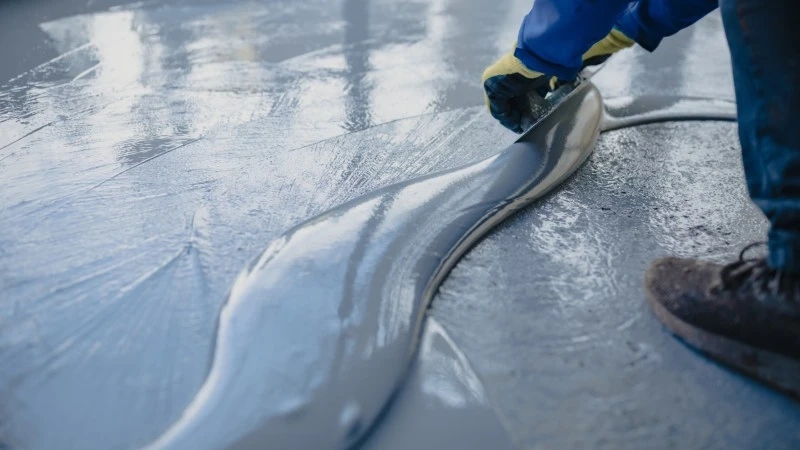Are you tired of dull and boring concrete floors in your home or business? Look no further than epoxy flooring! In recent years, the popularity of epoxy flooring has risen due to its strong durability, adaptable nature, and visually pleasing appearance.
In this blog, we will explore what epoxy flooring is and its benefits.
What Is Epoxy Flooring?
Epoxy flooring is a type of flooring made by combining two main components, a resin, and a hardener. When these two components are mixed together, they chemically react to create a strong, rigid plastic material. Epoxy flooring can be applied to concrete, wood, and many other surfaces to create a durable, high-performance floor.
Benefits of Epoxy Flooring
Epoxy flooring offers a wide range of benefits for both residential and commercial applications. Below are some significant advantages of utilizing epoxy flooring:
(i). Durability
Epoxy flooring is incredibly durable and can withstand heavy foot and vehicle traffic without cracking or chipping.
(ii). Versatility
Epoxy flooring can be customized to match any style or design, making it an excellent option for any space.
(iii). Easy Maintenance
Epoxy flooring is easy to clean and maintain, making it an ideal option for high-traffic areas.
(iv). Safety
Due to its slip-resistant properties, epoxy flooring provides a secure and safe choice for commercial and industrial settings.
(v). Chemical Resistance
Epoxy flooring is resistant to chemicals, making it an excellent option for industrial settings.
Types of Epoxy Flooring
Numerous kinds of epoxy flooring exist, and each has distinct characteristics and advantages. Here are the most common types of epoxy flooring:
1. Self-Leveling Epoxy Flooring
Self-leveling epoxy flooring is a great option for floors that have minor imperfections or unevenness.
2. Metallic Epoxy Flooring
Metallic epoxy flooring is a popular option for creating a unique, eye-catching design. This type of epoxy flooring contains metallic pigments that create a shimmering, iridescent effect.
3. Quartz Epoxy Flooring
Quartz epoxy flooring is a popular option for commercial and industrial settings. This type of epoxy flooring contains quartz granules that provide additional durability and slip resistance.
4. Terrazzo Epoxy Flooring
Terrazzo epoxy flooring is a combination of epoxy resin and decorative aggregates such as marble, granite, or glass. This type of epoxy flooring creates a unique, high-end look that is perfect for commercial and residential settings.
Installation of Epoxy Flooring
The installation of epoxy flooring involves several steps to ensure proper adhesion and a long-lasting finish. Below are the fundamental procedures that take place when setting up epoxy flooring:
(i). Surface Preparation: The surface must be cleaned and free of any contaminants, such as grease or oil.
(ii). Primer Coat: A primer coat is applied to the surface to ensure proper adhesion of the epoxy.
(iii). Epoxy Application: The epoxy is mixed and applied to the surface in multiple coats to achieve the desired thickness and finish.
(iv). Topcoat: A topcoat is applied to the surface to protect the epoxy from scratches and UV damage.
Conclusion
Epoxy flooring is a durable, versatile, and aesthetically pleasing option for both residential and commercial applications. With its easy maintenance and safety benefits, it is a great choice for high-traffic areas. Numerous varieties of epoxy flooring can be found, and they each possess their distinct features and advantages. Visit AZ Painting to learn more about how epoxy flooring can transform your space.


